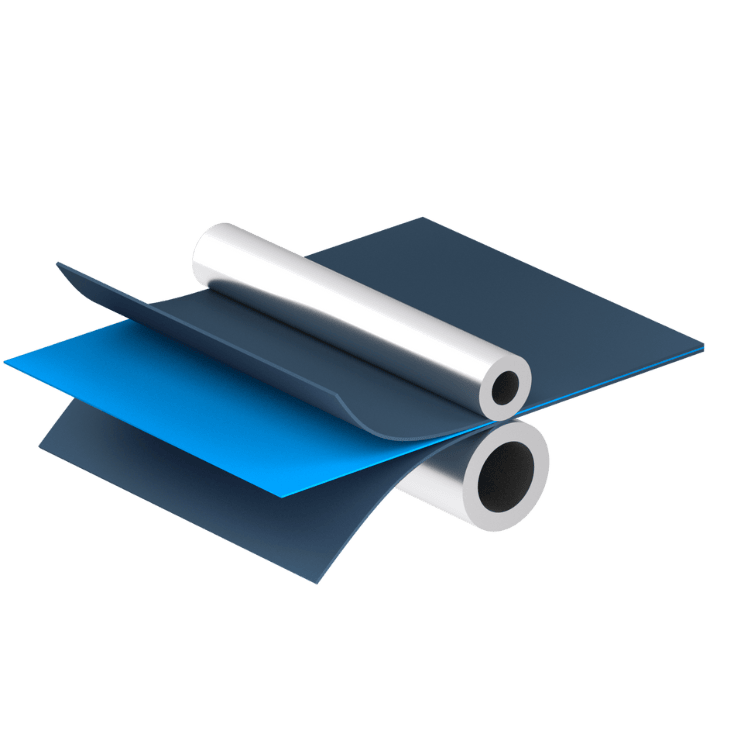Le complexing is an industrial process which consists of joining together two or more strips of flexible or rigid materials using a technical adhesive.
These materials can be plastic films, technical papers, non-wovens or metal foils.
The principle is based on the application of an adhesive to the least absorbent strip, followed by a passage under high pressure between heated cylinders. This process produces a homogeneous, ultra-strong assembly.
Depending on requirements, it is possible to produce :
from duplex (assembly of two layers),
from triplex (three layers),
or more complex multi-layer structures.
Laminating is not just an assembly technique. It is a veritable driving innovation and performance.
Its main benefits include
Optimising functional properties A barrier against moisture, heat, solvents or gases.
Reinforced mechanical resistance better resistance to physical stress.
Weight reduction A lighter alternative to traditional solutions.
Flexibility and adaptability The ability to combine different materials to create a unique product.
Simple integration time-saving production thanks to pre-assembled materials.
Increased durability : consistent performance over the long term.

Complexing is used in a large number of industries, with a wide variety of applications.
Acoustic and thermal insulation for the automotive and aerospace industries.
Barrier films for batteries, wiring and on-board electronic components.
Protection of surfaces against abrasion and corrosion.
Technical membranes for waterproofing facades and roofs.
Multilayer films for thermal and acoustic insulation.
Temporary reinforcements and protection for worksites.
Electrical insulating films for motors, transformers and cables.
Conductive or antistatic laminates for circuit protection.
Technical films for flexible electronics.
Sterile films for medical devices.
Breathable complexes for hygienic and medical solutions.
Barrier films for pharmaceutical packaging.
With decades of experience in multi-material processing and bonding, ADDEV Materials offers unique, tailor-made solutions.
Our strengths:
Recognised expertise in industrial lamination and complexing.
State-of-the-art equipment for small production runs or large volumes.
Customised solutions choice of materials, adhesives, finishes and formats.
Technical support In-house laboratory and R&D support to test and validate your solutions.
A lasting commitment environmentally-friendly processes, solvent-free adhesives and recycled or bio-sourced materials.
This is a process that enables several materials to be assembled in successive layers using an adhesive, to create a composite product with reinforced properties.
Plastic films (PET, PE, PP), technical papers, aluminium, non-wovens, foams, etc. The choice depends on the performance required (barrier, resistance, insulation).
Laminating is the simple assembly of two materials. Laminating, on the other hand, combines several layers and integrates specific functionalities.
The main sectors are automotive, aeronautics, electronics, construction, health and technical packaging.
Yes, with the use of solvent-free adhesives, recycled or bio-based films, and processes designed to reduce the carbon footprint.